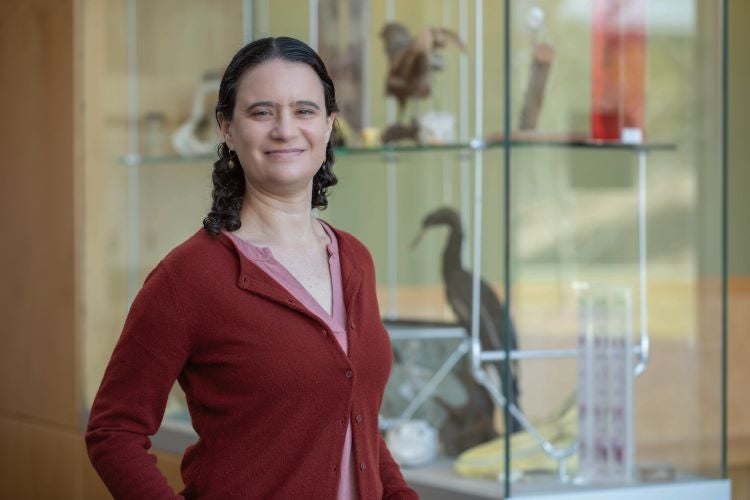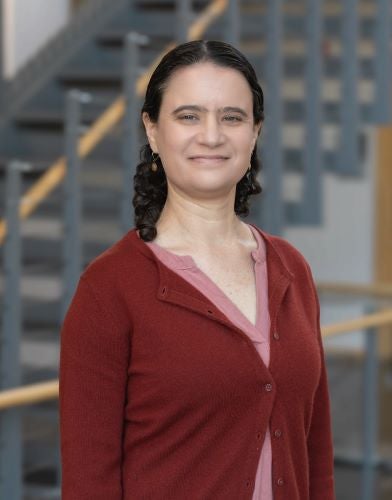Facilitating the Use of Genomic Data in Evolutionary Biology
To understand evolution, people have to know which species are most closely related. But despite extensive study, the relationships among some groups of species remain controversial.
Rachel Schwartz, associate professor in the Department of Biological Sciences, seeks to understand why despite sequencing large amounts of genomic data for many species, scientists continue to struggle to understand some species relationships.
Schwartz’s 2020 National Science Foundation (NSF) CAREER award funded her team’s work to move phylogenetics (the understanding of species relationships) away from simply using more data and toward using data with optimal information about species’ relationships. First, she and her team identified ways to easily obtain subsets of the genome that can be compared to understand species relationships. They then examined these data to determine which supported well-established relationships and which were misleading.
“Our goal is to find the best genomic data to use,” Schwartz says. “Scientists compare little pieces of the genome to determine which species are most closely related, so depending on which data you pick you may get different answers. What we’re doing in the lab is trying to figure out where you have parts of the genome that have useful information and that tell you that certain species are closely related.”

In developing these methods, Schwartz and her team are creating tools that allow other researchers in evolutionary biology to determine how the species they study are related. Understanding these relationships allows researchers to draw conclusions about how traits evolved, benefiting broader evolutionary study.
The CAREER award gave Schwartz the opportunity to expand on her foundational work in phylogenetics. At the end of her Ph.D., she felt frustrated by analytical methods for working with large amounts of genetic data, which caused her to wonder: Now that we have so much data, do we have to deal with all of it or just use the best data?
The award meant being able to move her research into using machine learning tools to evaluate data in a more complex and interactive way and make predictions about more useful data. The result meant that students would feel more confident that the answers they find are correct.
“When undergrads think research, they think hands-on, not computational work,” she explains. “But, by reusing a lot of the available genome data and developing some computational skills, students can ask their own research questions and develop answers without needing financial resources to acquire samples and do genome sequencing. I want to support students early on in their careers to develop skills so they can do research independently.”
Schwartz has brought her computational emphasis to develop course-based research where students are able to do independent projects ranging from basic phylogenetic studies to assembling, annotating, and examining variants in SARS-CoV-2 sequence data, even as freshmen and sophomores.
As part of the award, she has mentored 15 undergraduate students in her lab in a range of projects, from hands-on genome sequencing work to computational work in phylogenetics and methods development. Additionally, she brought cutting-edge genome sequencing to undergraduates, first through a hands-on workshop where students sequenced and assembled E. coli genomes, and then by helping Associate Professor Neil Greene in URI’s Department of Cell and Molecular Biology integrate these activities into a course on pathogenic bacteria.
Schwartz credits the NSF for supporting her research and providing her with opportunities to serve on panels with NSF program officers to evaluate proposals.
“The NSF has an amazing group of people, and I often see proposals on the cutting edge of research in evolutionary biology, genomics, and bioinformatics,” she says. “That research might not immediately be applied, but it is the foundation of what goes into textbooks. The NSF funds a lot of great work that changes our knowledge of biology and pushes research forward, which is very exciting.”

